DSS official threatens force in Kosovo
Dušan Proroković (DSS) says Serbia is "ready to use force to prevent West from recognizing Kosovo's independence."
Thursday, 06.09.2007.
10:53

Dusan Prorokovic (DSS) says Serbia is "ready to use force to prevent West from recognizing Kosovo's independence." State secretary for Kosovo, of Prime Minister Vojislav Kostunica's Democratic Party of Serbia, said Serbia was ready for the possible deployment of forces to the province, the sealing of its borders and a trade embargo in the event that Kosovo's Albanians declared an independence that was recognized by Western governments, the International Herald Tribune reported late Wednesday. DSS official threatens force in Kosovo The potential steps are the harshest outlined so far by the government in Belgrade, which until now had shied away from making any threats. Prorokovic warned that unilateral recognition by Western states would give Serbia the right to return its troops to the region, and to annul an eight-year agreement between NATO and the then-Yugoslav government regulating their exclusion. "In the case of self-proclamation, it is not an active document anymore," Prorokovic said, referring to the Kumanovo military accord. "Without Kumanovo, our army can go back without any legal limits. It can cross the boundary and go everywhere in Kosovo without any legal problems." Prorokovic said the redeployment of the Serbian Army was one of up to 16 options Serbia was considering if Kosovo declared independence. He also reinforced his government's stance that continued talks on Kosovo's future were the only option worth considering. "We do not have an alternative," he said. If Kosovo Albanian leaders proceeded with their plans to declare unilateral independence at the end of current talks, Prorokovic said, Serbia would launch a trade embargo on the province, which relies on Serbia for much of its imports, and seal its boundaries with Serbia. "We will block every kind of commercial activity and every kind of route," he said. A foreign policy adviser to Kosovo's prime minister, Agim Ceku, said Prorokovic's statement would not deter the Kosovo Albanian leadership from seeking recognition after negotiations finish in December. "How do they walk over NATO troops in the region, and what do they do when they are exposed to open conflict?" said the adviser, Borut Grgic. "Occupation is out of the question. The international community would block it." But Grgic conceded that the region was likely to face the possibility of renewed tension by the end of the year as Kosovo's Albanian leaders move ever closer to proclaiming their own state. "No matter what happens, there will be a period of high instability and potential for conflict," said Grgic, who is also director of the Institute for Strategic Studies, a foreign policy research group based in Ljubljana, Slovenia. "This will come after December; there will be a period of six months of uncertainty, and you will have a lot of actors who want to assert themselves and stake their claim," he said in a telephone interview. Bratislav Grubacic, editor of VIP News and a leading political commentator in Belgrade, said Serbia's increasingly tough stance on Kosovo, bolstered by Russia's refusal to accept recognition of the province within the UN Security Council, may test the nerves of European states that are divided over the region's future. The Serbs "know that security is not fantastic in Kosovo," said Grubacic. "In a way they are threatening the others. You know the situation is not great," he said, referring to the possible deployment of Serbian troops in the region. Most European states have troops deployed with the 17,000-strong NATO force in the province. The European Union has also agreed to lead a new mission to supervise the region once the UN administration leaves the province. Several European states, including Greece, Cyprus, Romania and Slovakia, have said they will not recognize Kosovo's independence without a UN resolution. "Disunity of Europe," Grubacic said, "is one of the Serbs' main weapons in their negotiations." Foreign Minister says violence is not option Serbia will not threaten military action in Kosovo even though a declaration of independence by the province would open a "Pandora's box" of security problems in the Balkans, Serbia's foreign minister said yesterday. "We will not contribute to the destabilization of the province by physical, military or security means," Vuk Jeremic, of President Boris Tadic's Democratic Party (DS), told the Financial Times in an interview. "All legal, diplomatic and practical resources, short of security and defense resources, will be used in order to demonstrate that we don't accept a declaration of independence and that it's invalid." "Politically, morally and practically, we can't sell out Kosovo in a Serbian democracy," Jeremic said. Jeremic appeared to rule out such suggestions, noting that Kosovo is, according to UN Security Council resolution 1244, still legally a Serbian province. "We're against the partition of Serbia, regardless of whether it goes along the Ibar river or anywhere," he said. He added: "What is important - and I can't emphasize this enough - is that we find a solution acceptable to both sides." Balkan experts warn that Kosovo's partition could have dangerous consequences by reviving the clamour for borders redrawn along ethnic lines that contributed to the wars in Croatia, Bosnia and Kosovo. Macedonia, which borders Kosovo and has a substantial ethnic Albanian minority, is among the countries considered at risk. "Changing the borders is okay as long as the two sides agree," Jeremic said. "If they don't agree, it amounts to a forced change of borders, which then opens up a Pandora's box." He was speaking after he held talks in Brussels with Olli Rehn, the EU's commissioner for enlargement. Jeremic said Serbia hoped to initial a "stabilization and association agreement" (SAA) with the EU next month that would serve as a first step to making Serbia an official candidate for full EU membership. But he added, "If Serbia and the rest of the region are severely destabilized because of Kosovo, then in 2008 - the year we're supposed to implement all the reforms under the SAA - I can envisage serious difficulties in carrying out these reforms." Any act of Kosovo independence to be nullified Education Minister Zoran Loncar (DSS) has today repeated that Serbia will nullify any act pertaining to Kosovo independence. He added that "the creation of the first NATO state" would never be accepted. "Yesterday we were able to hear a statement from a NATO spokesman saying that they were not intending to turn our province into their own state." "He is certainly familiar with Annex 11 of the Martti Ahtisaari plan, which makes me wonder what exactly we should call a set-up where the NATO commander has the authority to do everything, including deploy armed force, without asking for anyone else’s opinion or permission," Loncar told Beta. The minister also wondered what the spokesman would call a set-up, where the NATO commander would have the power "to use all necessary force when required, without further sanction or permission." "Maybe the NATO spokesman has a more suitable name than the first NATO state for this set-up envisaged by the Ahtisaari plan," concluded Loncar. Yesterday, NATO spokesman James Appathurai rejected the criticism coming from Belgrade that the alliance was seeking to create its own state.
DSS official threatens force in Kosovo
The potential steps are the harshest outlined so far by the government in Belgrade, which until now had shied away from making any threats.Proroković warned that unilateral recognition by Western states would give Serbia the right to return its troops to the region, and to annul an eight-year agreement between NATO and the then-Yugoslav government regulating their exclusion.
"In the case of self-proclamation, it is not an active document anymore," Proroković said, referring to the Kumanovo military accord.
"Without Kumanovo, our army can go back without any legal limits. It can cross the boundary and go everywhere in Kosovo without any legal problems."
Proroković said the redeployment of the Serbian Army was one of up to 16 options Serbia was considering if Kosovo declared independence. He also reinforced his government's stance that continued talks on Kosovo's future were the only option worth considering.
"We do not have an alternative," he said.
If Kosovo Albanian leaders proceeded with their plans to declare unilateral independence at the end of current talks, Proroković said, Serbia would launch a trade embargo on the province, which relies on Serbia for much of its imports, and seal its boundaries with Serbia.
"We will block every kind of commercial activity and every kind of route," he said.
A foreign policy adviser to Kosovo's prime minister, Agim Ceku, said Proroković's statement would not deter the Kosovo Albanian leadership from seeking recognition after negotiations finish in December.
"How do they walk over NATO troops in the region, and what do they do when they are exposed to open conflict?" said the adviser, Borut Grgić.
"Occupation is out of the question. The international community would block it."
But Grgić conceded that the region was likely to face the possibility of renewed tension by the end of the year as Kosovo's Albanian leaders move ever closer to proclaiming their own state.
"No matter what happens, there will be a period of high instability and potential for conflict," said Grgić, who is also director of the Institute for Strategic Studies, a foreign policy research group based in Ljubljana, Slovenia.
"This will come after December; there will be a period of six months of uncertainty, and you will have a lot of actors who want to assert themselves and stake their claim," he said in a telephone interview.
Bratislav Grubačić, editor of VIP News and a leading political commentator in Belgrade, said Serbia's increasingly tough stance on Kosovo, bolstered by Russia's refusal to accept recognition of the province within the UN Security Council, may test the nerves of European states that are divided over the region's future.
The Serbs "know that security is not fantastic in Kosovo," said Grubačić.
"In a way they are threatening the others. You know the situation is not great," he said, referring to the possible deployment of Serbian troops in the region.
Most European states have troops deployed with the 17,000-strong NATO force in the province. The European Union has also agreed to lead a new mission to supervise the region once the UN administration leaves the province.
Several European states, including Greece, Cyprus, Romania and Slovakia, have said they will not recognize Kosovo's independence without a UN resolution.
"Disunity of Europe," Grubačić said, "is one of the Serbs' main weapons in their negotiations."
Foreign Minister says violence is not option
Serbia will not threaten military action in Kosovo even though a declaration of independence by the province would open a "Pandora's box" of security problems in the Balkans, Serbia's foreign minister said yesterday."We will not contribute to the destabilization of the province by physical, military or security means," Vuk Jeremić, of President Boris Tadić's Democratic Party (DS), told the Financial Times in an interview.
"All legal, diplomatic and practical resources, short of security and defense resources, will be used in order to demonstrate that we don't accept a declaration of independence and that it's invalid."
"Politically, morally and practically, we can't sell out Kosovo in a Serbian democracy," Jeremić said.
Jeremić appeared to rule out such suggestions, noting that Kosovo is, according to UN Security Council resolution 1244, still legally a Serbian province.
"We're against the partition of Serbia, regardless of whether it goes along the Ibar river or anywhere," he said.
He added: "What is important - and I can't emphasize this enough - is that we find a solution acceptable to both sides."
Balkan experts warn that Kosovo's partition could have dangerous consequences by reviving the clamour for borders redrawn along ethnic lines that contributed to the wars in Croatia, Bosnia and Kosovo.
Macedonia, which borders Kosovo and has a substantial ethnic Albanian minority, is among the countries considered at risk.
"Changing the borders is okay as long as the two sides agree," Jeremić said. "If they don't agree, it amounts to a forced change of borders, which then opens up a Pandora's box."
He was speaking after he held talks in Brussels with Olli Rehn, the EU's commissioner for enlargement.
Jeremić said Serbia hoped to initial a "stabilization and association agreement" (SAA) with the EU next month that would serve as a first step to making Serbia an official candidate for full EU membership.
But he added, "If Serbia and the rest of the region are severely destabilized because of Kosovo, then in 2008 - the year we're supposed to implement all the reforms under the SAA - I can envisage serious difficulties in carrying out these reforms."
Any act of Kosovo independence to be nullified
Education Minister Zoran Lončar (DSS) has today repeated that Serbia will nullify any act pertaining to Kosovo independence.He added that "the creation of the first NATO state" would never be accepted.
"Yesterday we were able to hear a statement from a NATO spokesman saying that they were not intending to turn our province into their own state."
"He is certainly familiar with Annex 11 of the Martti Ahtisaari plan, which makes me wonder what exactly we should call a set-up where the NATO commander has the authority to do everything, including deploy armed force, without asking for anyone else’s opinion or permission," Lončar told Beta.
The minister also wondered what the spokesman would call a set-up, where the NATO commander would have the power "to use all necessary force when required, without further sanction or permission."
"Maybe the NATO spokesman has a more suitable name than the first NATO state for this set-up envisaged by the Ahtisaari plan," concluded Lončar.
Yesterday, NATO spokesman James Appathurai rejected the criticism coming from Belgrade that the alliance was seeking to create its own state.










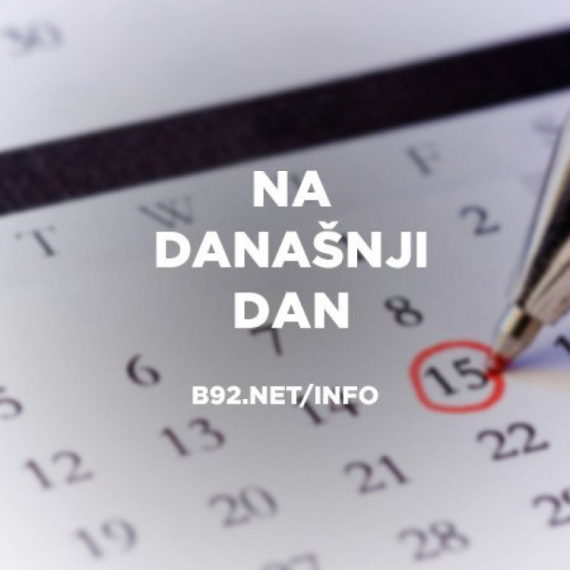
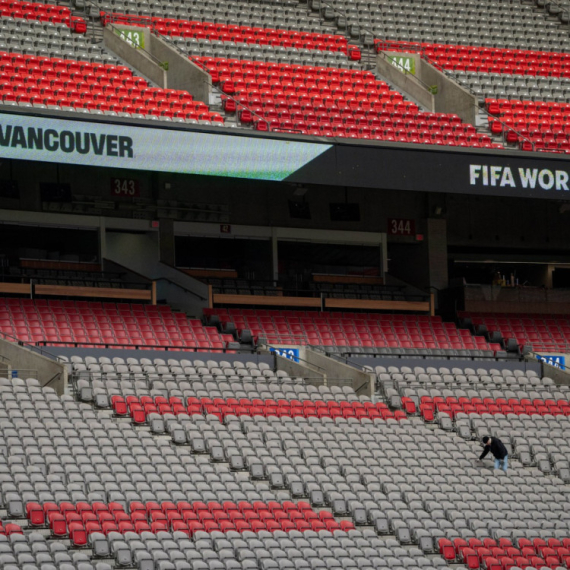
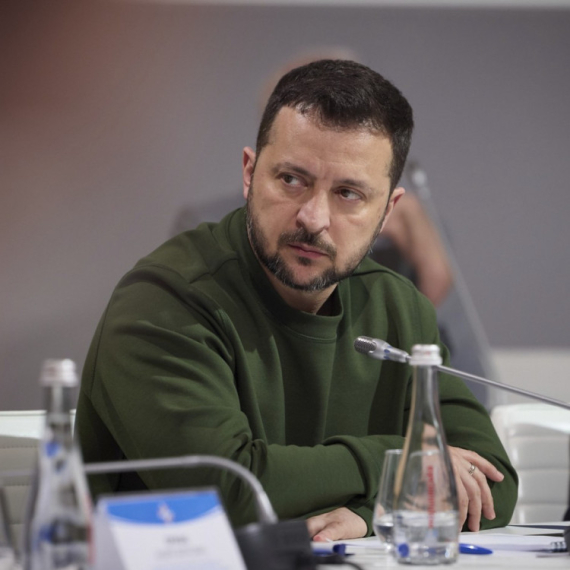


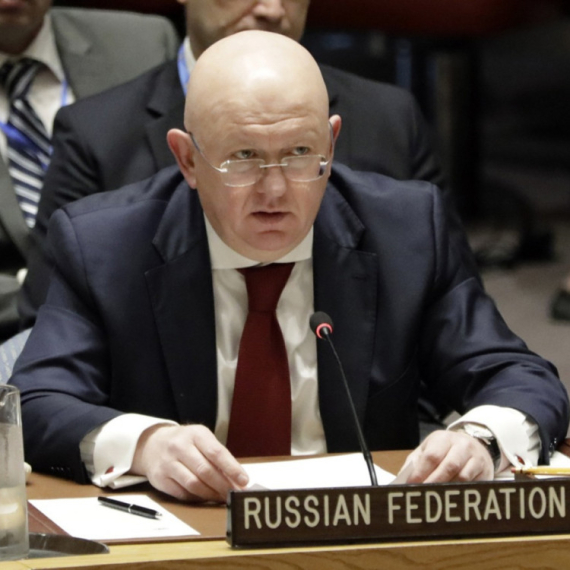
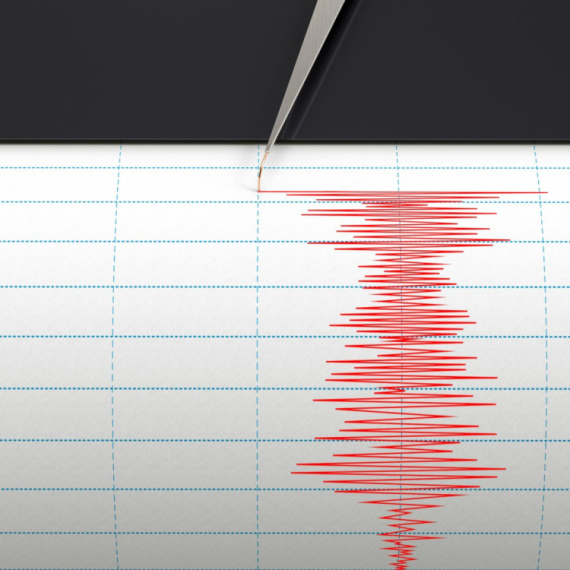































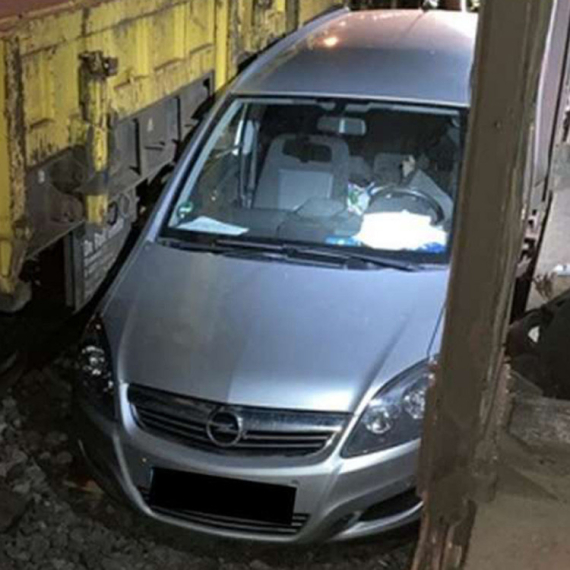






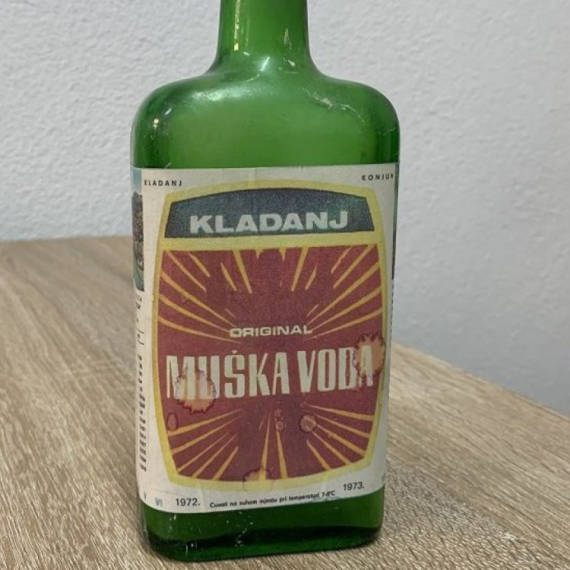


Komentari 78
Pogledaj komentare